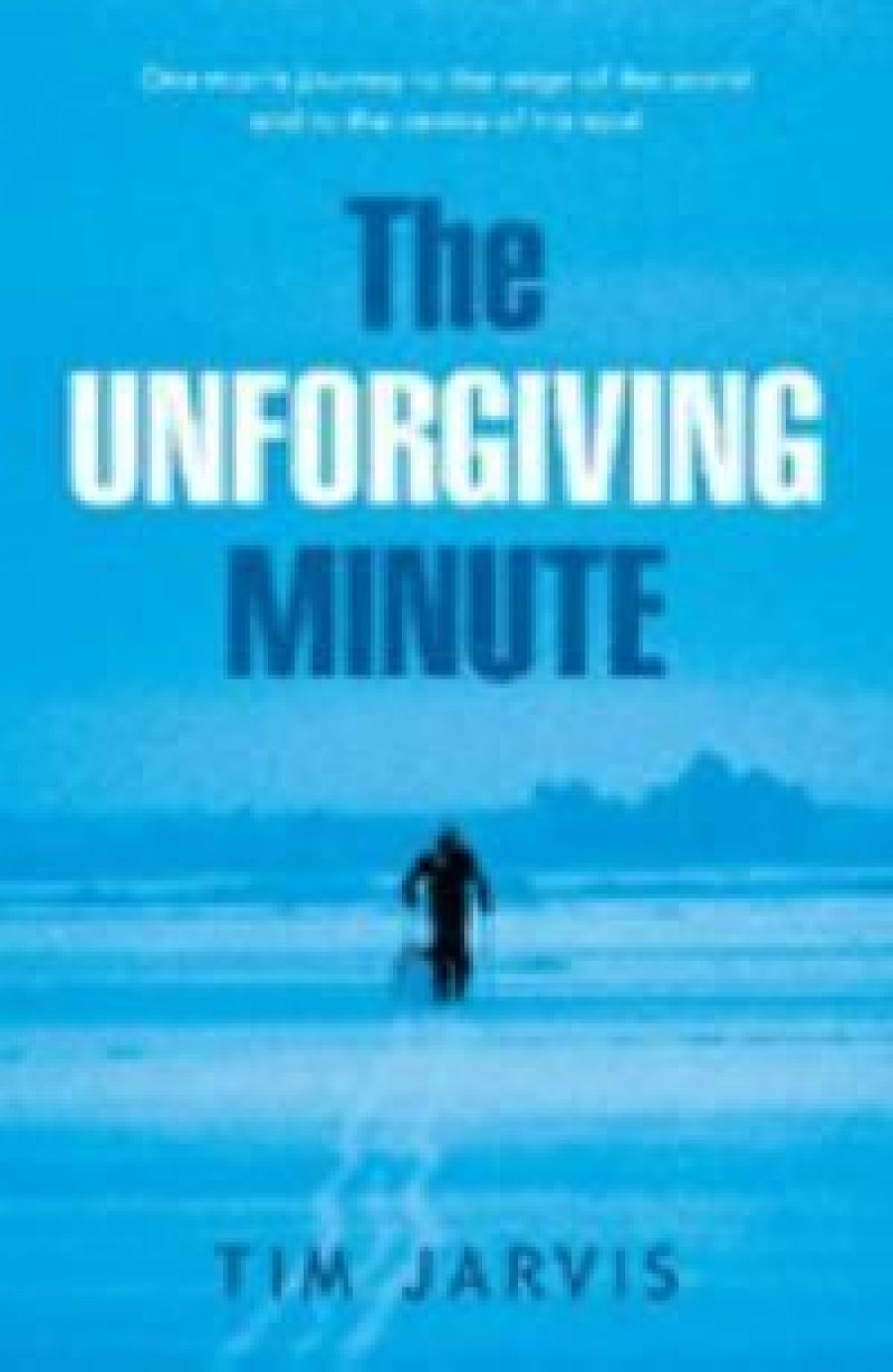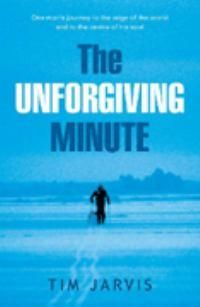
- Free Article: No
- Contents Category: Memoir
- Review Article: Yes
- Article Title: Pushing Your Envelope
- Online Only: No
- Custom Highlight Text:
I’ve always been interested in trying new things,’ Tim Jarvis declares disarmingly in the opening line of The Unforgiving Minute, ‘and I’m not sure I know exactly why.’ Unlike Scott or Shackleton, Jarvis has no literary aspirations but is a knockabout bloke who gives motivational talks on his adventures and who believes in a gospel of personal effort, physical challenge and – trailing these two by a long margin – the wonder of the natural world. This account of a series of polar journeys is self-consciously structured using the effective journalistic device of plunging the reader into an intense situation at the opening of each chapter, and finishing each chapter with a teaser for the next. Like most accounts of polar exploration, it is a weird blend of numbing dullness and compulsive interest. Jarvis has taken the lessons of his public speaking and turned them into a pleasing book, firmly in the self-help genre, with gripping accounts of the many crises that inevitably beset extreme adventure expeditions, not to mention the prurient details of toilet habits, tooth decay and muscle wastage.
- Book 1 Title: The Unforgiving Minute
- Book 1 Biblio: Bantam, $32.95 pb, 294 pp
- Book 1 Cover Small (400 x 600):

- Book 1 Cover (800 x 1200):

Like Thoreau, Jarvis believes that ordinary life is marked by a ‘quiet desperation’. He describes his epiphany, after a successful rowing competition, that extreme physical adventure was his escape route from the everyday. He was flooded by ‘a sense of urgency that I needed to get on with really living and testing myself’. Driving home from the competition, he looks at the hapless ‘nine to fivers heading home’ and wonders ‘how much undiscovered potential they had … I thought to myself, they might never find out, but I will’.
In his unease with the ordinary, the domestic, the political and the reflective life, Jarvis is at home with his heroes, Scott, Shackleton and Mawson. Both polar trips, taken in tandem with the Australian explorer Peter Treseder, were ‘unsupported’: the men hauled all of their own supplies in sledges without aerial resupply. This is supposed to induce an experience like that of the early explorers. However the differences are stark. For one thing, Jarvis is always on known land and in satellite phone communication, for all the real danger he faces. For another, the early expeditions were saturated in a cultural context of romantic idealism about Nature. Men such as Scott, Shackleton and Mawson believed that awesome places like Antarctica really could transform their souls. As Shackleton wrote, in a famous passage quoted by Jarvis: ‘We had pierced the veneer of outside things. We had suffered, starved and triumphed … grown bigger in the bigness of the whole. We had seen God in his splendours, heard the text that nature renders. We had reached the naked soul of man’ (actually the middle sentence is from Service, the Canadian poet).
At the end of the nineteenth century, the spiritual impulse, newly freed from its religious mooring, was avidly seeking new means of expression, new ways of lifting the individual into a heightened sense of self and the universe. Nature was a fresh stage for the ancient drama of transcendental experience. Even Mawson, an arch-pragmatist, was a lover of Robert Service, who wrote always of the transforming intensity of the polar experience, and Mawson himself spoke of ‘Providence’ at work in his return to the Hut after a terrible sledging accident. A century later, this impulse remains, but it finds a new home: the world of self-improvement. Transcendence once meant that one left the ordinary self, feeling an identification with a grander whole that unifies and uplifts all life, ‘the bigness of the whole’, as Shackleton put it. For Jarvis, it means that individuals confront their own fears and anxieties, and overcomes them. In a culture saturated with self-development as a model of spiritual expansion, Jarvis talks of the outcome of his travels as ‘striving to achieve your goals … that even attempting dreams is an achievement in itself … [in] pushing your own envelope’. The idea that the inner life might be a means to escape ‘your envelope’ altogether is not in the ambit of his universe. It is true that there are occasional moments of transcendent awareness in the book, but they are eclipsed by the gruelling reality of everyday sledging on the one hand, and the desire to exhort people to self-improvement on the other. The mix of insecurity and boastfulness that runs as an undercurrent through the story is not an individual failing but more an indication of the currency of ideas with which it pays its way.
Certainly, a pleasantly chilled read on a beach towel this summer, The Unforgiving Minute does not stand alongside earlier works of exploration as a journey into the human condition. For those who like to take their polar adventure as a doorway to the inner life, it might be better to try Peter Mathiessen’s account of his polar travels, invested with a sense of spiritual quest and environmental urgency, End of the Earth (2003); or return to the originals, whose polar journeys were not motivated by psychological change but achieved it obliquely, perhaps the best way of all to talk about the paradoxes of the soul.


Comments powered by CComment